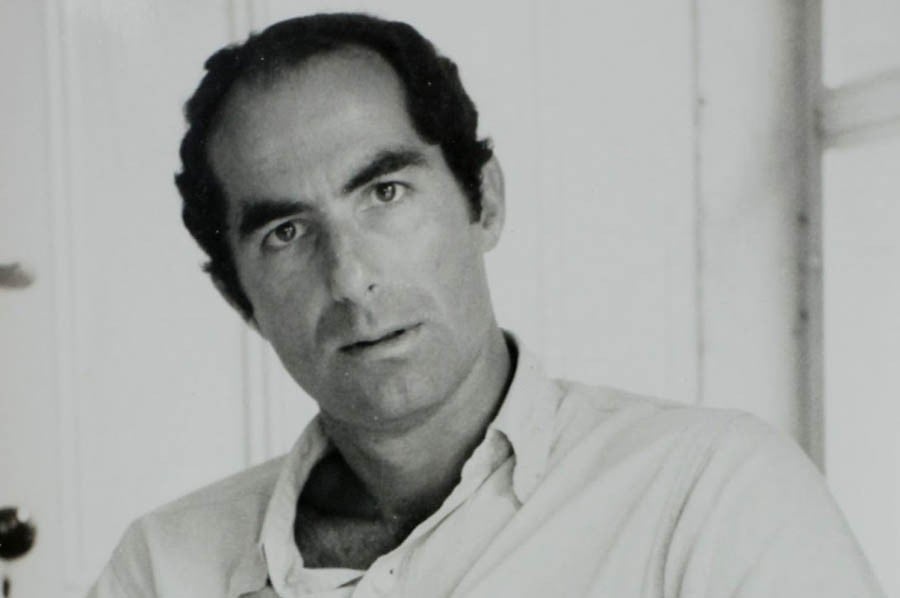
Phillip Roth had a unique eye and sensibility, an irreverent and comically inventive voice like no one else before him

Phillip Roth, the great American novelist who has died aged 85, represented a rich and creative period of American writing. Along with Saul Bellow and Bernard Malamud, he constituted the troika of preeminent American Jewish writers who excelled at mining the rich seam of Jewish experience in fiction.
With John Updike and Saul Bellow, he came to be called the triumvirate of great white male writers, with Roth outliving the other two.
Occupying these twin peaks, he surveyed America with a unique eye and sensibility, and wrote about it in a way no one else did before him. His is an irreverent and comically inventive voice in American literature.
Roth’s uniqueness also derived from his belief in the power of fiction which, in the words of the novelist Zadie Smith, lay "in its irresponsibility, in its comedy, in its vulgarity, and its divine independence".
Though he wrote from what Irwing Howe, a literary critic, described ‘a thin personal culture’ of his Jewish upbringing, his writing created wider resonance in the US and beyond. In fact, he did not react favourbaly to his characterisation as a Jewish writer. In a brilliant essay ‘Writing about Jews’ he wrote every great story is really always about its particular character who is not meant to represent the Jew or Jewry.
Roth wrote 31 books in a long career spanning more than fifty years. Though he won all major literary prizes, bar the Nobel Prize, he becomes the third living writer to have his books enshrined in the Library of America.
Rather than leaving it to literary critics, whom he disliked intensely, he classified his books by Zuckerman books, Roth books, Kepesh books and Nemesis books. Roth began with Goodbye, Columbus and ended with Exit Ghost in 2007. One writer has identified two defining periods in Roth’s life: early Roth and late Roth. Early Roth is characterised by motivations of needing, lusting and wanting while late Roth is defined by motivations of preparing, accepting and dying. The last period saw a flurry of novels on decaying physical power, illness and death. Dying Animal, Everyman, Exit Ghost, The Humbling and Nemesis all belong to late Roth period.
Roth quit writing in 2012 to concentrate on arranging his personal paper, and appointing and assisting Blake Bailey as his official biographer.
Philip Milton Roth was born to Herman Roth, an insurance company employee, and Bess Finkel, who was a company secretary before she married. Roth was the younger of two sons and the family lived in Newark, New Jersey, which is the setting and inspiration for much of his fictional work.
At the university, he gave up law for literature. Roth earned fame with his first collection of fiction Goodbye, Columbus in 1959. At just 29 years of age, he became a literary celebrity. Yet his acclaim also came with a great deal of displeasure from the Jewish community for what it perceived was less than favourable portrayal of Jewish community life. Roth’s short story ‘Defender of the Faith’ in 1959 attracted hostility of an eminent rabbi who accused Roth of being a self-hating Jew. At the University of Yeshiva, as a panelist on one of the literary talks, he was booed and hooted by Jewish students.
The experience left him demoralised and deflated for the moment. Yet he was not deterred in expressing his anti-religious views which he held throughout his life. Late in his life, he told The Guardian newspaper: "I’m exactly the opposite of religious, I’m anti-religious. I find religious people hideous. I hate the religious lies. It’s all a big lie."
In time, he recovered and returned to the literary world with Portnoy’s Complaint which focuses on sexual awakening and masturbatory habit of a Jewish boy. The novel scandalised whole of America for its relentless focus on sex, largely treated in a comical way.
Roth made a trip to Eastern Europe in early 1970s. The region fascinated Roth immensely, partly due to his parent’s roots in Eastern Europe. His lasting contribution from this period is his novella The Prague Orgy. Besides, Roth encouraged a new crop of Eastern European writers to the wider Western world. Among the new writers were Ivan Klima and Milan Kundera.
It was also in that period that he entered into a relationship with Claire Bloom, an English actress. He began dividing time between Britain and America. Roth returned to America in 1995 following his acrimonious divorce from Claire Bloom. Though in his early sixties, Roth embarked on an extraordinary creative binge, producing a trilogy of great novels: American Pastoral, I Married a Communist and The Human Stain.
American Pastoral is the story of a concerned and respectable father whose life is turned upside down by his daughter’s involvement in the radical politics of the 1960s when he sees her charged in a bomb attack on a post office. I Married a Communist is a thinly disguised account of his crumbling marriage as well as the McCarthyite era in the US. The Human Stain is about a university professor who falls foul of the political correctness holding swaying over the universities in the 1960s. Coleman Silks, himself a half caste, loses his job when he is accused of racism by a black student. Dismayed by the episode, he begins a sexual relationship with a much younger woman. The novel carries echoes of Clinton-Monica affair. The trilogy explored the theme of the impact of broader US politics on individual lives.
Roth’s novels were also translated to the screen. Eight of his novels made it to the screen. Among those adapted into films include: Goodbye, Columbus, Portnoy’s Complaint, The Human Stain, The Dying Animal, The Humbling, American Pastoral, Indignation and The Ghost Writer. The literary world would be much poorer without him.